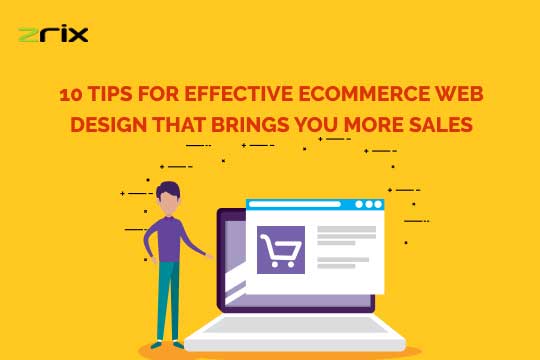What is Shopify?
Shopify is a popular eCommerce platform that enables small and large businesses to sell offline and online goods. You can either create a Shopify store or sell it on your current website. With a Shopify buy button, you can also sell through social media, guest blog posts, emails, and in-person.
You should also consider Shopify website development costs for further operations related to Shopify website design.
What is Magento?
Magento is one of the most amazing eCommerce platforms. Magento is an open-source eCommerce platform designed for public use. Furthermore, it provides online retailers with a configurable shopping cart system and allows them to manage the content, design, and operation of their eCommerce stores.
Magento is an innovative and advanced eCommerce platform with two versions for small and large enterprises, including community and enterprise. If you want to hire a designer or an agency to construct your eCommerce website, it is important to hire the best Magento website development services.
Important things related to Magento:
Robust eCommerce Platform
Magento is a robust eCommerce development platform that can help you with your business demands. It is a basic feature of Magento. It's extremely scalable, and it can easily build an online store and handle thousands of products. As a result, this is regarded as one of Magento's most significant features. If you are using Magento at the beginning of your firm, you won't have any issues with speed or sustainability. Product and inventory management solutions make it easier to organize and manage goods on your eCommerce website design. Furthermore, this technology allows you to change the filters and navigation of your eCommerce website, which enhances conversion rates and overall speed.
Simple to customize
Magento enables you to customize the look of your website as well as product categories and functionality. Everything should be coded from the ground up when it comes to customization. Even though Magento has some built-in design themes, business owners who utilize the CMS can engage Magento 2 developers to make their site more unique and customized. You can reach out to customers by choosing payment, shipment, and language selections in addition to the style and management of websites. Many features are currently available in the Magento Marketplace as plugins, and they include solutions for finance, payment systems, shipping, extensions, and site optimization.
Also Read: 10 Tips for Effective Ecommerce Web Design That Brings You More Sales
Store managers benefit from these extensions because they improve user experience, backend productivity, market reach, visibility, multi-store management, and cost-effectiveness.
Increased Security
With security permissions, Magento helps to secure your eCommerce platform and properly regulate internal access. To prevent unforeseen breaches, you might create a secondary password. Magento uses CAPTCHA and PCI Data Security to ensure a high level of security. Magento's extensive security features, such as Google reCAPTCHA login panels and secondary password prompts with PCI Data Security as standard, allow shop administrators to safeguard their online store platform. It provides additional security against security vulnerabilities and site threats.
Important things related to Shopify
Intensive Manual Work
While designs and third-party applications offer capabilities, there's always the chance that an app won't work with your design or that it will require theme tweaks to function. Many of the most helpful app integrations have a monthly cost, which can add up quickly if you add a little to your web store. If your store needs a designer to make the appropriate changes to incorporate a new app or construct any special functionality, it might become even more costly.
App Integrations Can Cause Theme Disruption
Another consideration is that not all fully-integrated eCommerce platform is created in the very same manner. A few will generate new files and insert them into the files of your theme. Nevertheless, if you uninstall that software, it may not uninstall the produced files, keeping your theme altered and perhaps causing problems in the future. If a developer is using the Slate toolkit to join or alter the current theme in your store and is unfamiliar with the new app and related files, this might be quite problematic. Debugging and troubleshooting themes will become more challenging as a result of this.
Limited Customizability
Although the Shopify eCommerce store has a lot of useful features, it pales in contrast to the vast number of plugins available for frameworks like Woocommerce, many of which are free (there are amazingly free, bug-free, and very powerful plugins). Furthermore, Shopify website design only enables you to adjust specific aspects of its functionality, and it is less adaptable than self-hosted systems, which help you to change practically anything. Rather than employing something over which you have more power, Shopify uses a unique arrangement for theme tweaking. It's beneficial in some respects for some people, but it might be irritating for those who enjoy tweaking things without going all out.
Also Read: Powerful Ways To Use Artificial Intelligence In eCommerce Business
Conclusion
Magento is an SEO-friendly eCommerce platform, with multi-platform integration technology, and users may increase their SEO potential by using smart strategies. In the case of Magento vs. Shopify, Magento is the ideally preferable option if an online store platform wants to give a better user experience.
Shopify is the best choice for start-ups and small businesses while Magento is the best choice for the eCommerce development company. It provides highly scalable business opportunities. Shopify also provides more benefits to you but not much in eCommerce website development. However, Magento is much beneficial for your eCommerce website. eCommerce website development process becomes much easier with Shopify development agency in USA.





